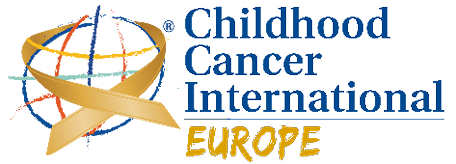COVID-19: Information for patients, families and survivors
Vienna, 17 April 2020: On the following page you will find an overview about SIOP Europe’s, CCLG’s and IGHG’s recommendations on how to deal with COVID-19 for childhood/adolescent cancer patients, survivors and their families.
COVID19 is a new strain of coronavirus first identified in Wuhan City, China in December 2019. There is still much to be learnt, however based on the experiences reported so far, children infected with COVID19 generally have mild symptoms. Children on chemotherapy will have reduced immunity and therefore have an increased risk for all infections and should always take additional care.
It is important that everyone follows their National guidance provided to reduce their individual risk of infection, in particular national instructions on social distancing and self-isolation.
How is the COVID-19 virus spread?
The virus is spread through droplets from the respiratory system of an infected person. The droplets are disseminated from the nose or mouth, for example when someone coughs or sneezes.
When the droplets land surfaces for example such as door handles, light switches, phones, table and desk surfaces, etc. The virus can stay active for up to 72 hours and can be spread when a person touches that surface and the puts their hand to their face, mouth or nose and can cause that person to become infected.
How to reduce the risk of COVID19 infection?
1. Hand washing:
• Make sure you wash your hands very frequently with soap and water
• If it is not possible to access soap and water, for example if you are outside, then use a hand sanitiser
2. Social distancing:
If you need to be on contact with anyone outside your immediate family, you must follow the social distancing advice from your Government.
Avoid circumstances where there maybe crowds of people, for example public transport. Each country has imposed travel restrictions appropriate the stage of the pandemic in that country. It is important you follow these instructions
What are the symptoms of COVID-19?
The most common symptoms are:
• A high temperature /fever
• Cough
• Shortness of breath or difficulty breathing
Other symptoms that are frequently experienced:
• Tiredness
• Aching muscles
• Runny nose
• Sore throat
What is the risk for my child to becoming infected?
Information available from the scientific literature and different experiences show that children in general get infected by COVID-19 much less frequently than adults and in any case less severely. This seems also true for children with cancer. However, the possibility to get infected does exist and this condition could reveal harmful for your child. For this reason, adequate individual and environmental protective measures such as isolation, personal and environmental disinfection and use of individual prevention devices are very important and should be implemented in all cases undergoing intensive chemotherapy treatment
What should I do if my child develops a fever?
You should follow the normal guidance for attending hospital if your child develops a fever. Your child will be assessed and treated as per your local hospital policy. If you are concerned that your child has symptoms of COVID-19 or has a known COVID-19 contact, it is essential that you inform the treating hospital before your arrival so necessary arrangements can be made.
What will happen to my child’s cancer treatment during the COVID19 pandemic?
In most cases, your child’s treatment will continue as planned. Your treating centre will advise you on any changes in the arrangements at that hospital. For example, some clinic appointments may be changed to a telephone or video conference to reduce the need for you to attend the hospital.
Unless given specific advice by your treating doctor, there is no reason to stop oral chemotherapy or change your child’s chemotherapy to reduce the risk of neutropenia or for any other reason during the pandemic.
However, due to exceptional circumstances the treatment schedule may be modified. This will always be done in the best interest of your child.
If you have any questions about your child’s treatment, please talk to your treating doctors.
COVID-19 guidance for children and young people with cancer undergoing treatment and their families
This guidance is intended for children and young people on active cancer treatment and up to six months after completion of treatment and those who have received a bone marrow transplant (BMT), also called a stem cell transplant (SCT). Futher information can be found here!
IGHG Statement. COVID-19 for survivors of childhood, adolescent or young adult cancer
The International Guideline Harmonization Group published a statement to provide guidance to childhood, adolescent and young adult cancer survivors related to risk and additional preventive measures for COVID-19.
It provides general information about survivors’ potential risk for severe course of COVID-19 and 4 recommendations for survivors. More information here!
More Information and a guidance here:
Further guidance and information is available via the SIOP website at www.siope.eu and on www.cclg.org.uk

